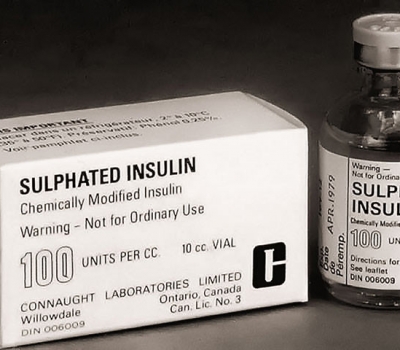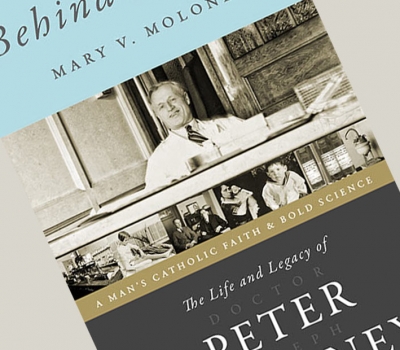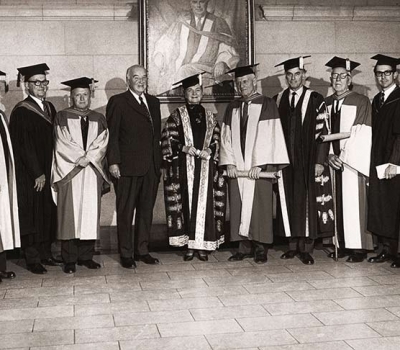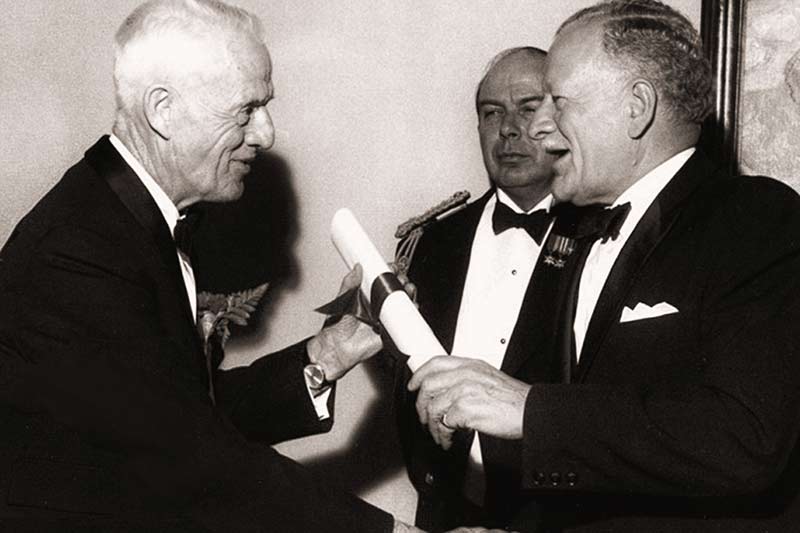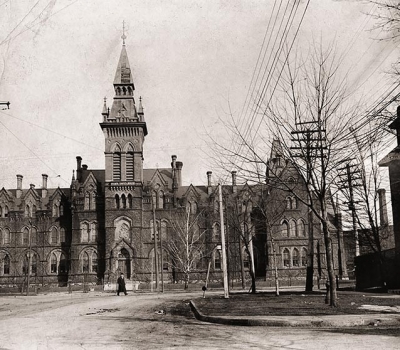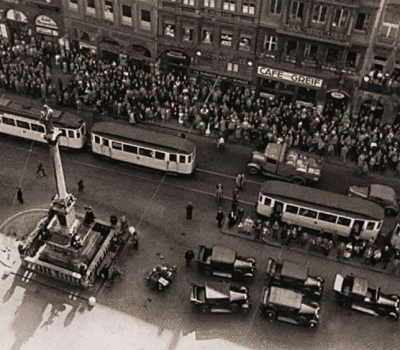Leading British, American and Continental research workers studying the biochemistry and physiology of carbohydrate and protein metabolism in relation to the action of insulin were invited to take part in this Symposium, which was convened by the British Insulin Manufacturers and held under the chairmanship of Professor F. G. Young. Dr. Moloney was the only Canadian invited to this symposium held in London, Sept. 9 and 10, 1958. There were 77 participants, including Sir Henry Hallett Dale.
The British Insulin Manufacturers published a book about this symposium in 1960. The value of the original papers was considerably enhanced by the very critical discussion which followed the presentation of each: both papers and discussions are fully reported in this valuable book, which contains important new material (for contemporaries) for all workers in the fields of endocrinology, diabetes, biochemistry, therapeutics, pharmacology, physiology and chemical pathology. Excerpts of Dr. Moloney's presentation "Antibodies to Insulin" and his discussion contributions will be published here.
ANTIBODIES TO INSULIN P. J. Moloney Connaught Medical Research Laboratories, University of Toronto "There is a question which might be asked even at this late date and which is suggested by the subject for discussion; and the question is this: are antibodies induced by insulin? It is true that an affirmative answer has already been given to the question; still there are some reasons why it might be re-examined. For example, there is good evidence to indicate that certain in vitro reactions which have been ascribed to insulin-anti-insulin are due instead to antigen other than insulin which may contaminate crystalline insulin, and corresponding antibody. There is also the matter of inactivation of insulin by serum from insulin-resistant animals. One might ask, is it possible that such neutralization is effected, not by antibody but by destruction of insulin as, for example, by an enzyme? I shall have something to say about these questions and I hope to show that insulin can indeed induce in animals a corresponding antibody; and in addition I shall present results which have to do with different types of anti-insulins and with insulins which differ in respect of neutralization. By antibodies to insulin I mean antibodies which neutralize the physiological action of insulin. This is the type of antibody which is encountered with certain diabetics, fortunately rarely, and which is responsible in these for the ineffectiveness of insulin to control the disease.
DISCUSSION Dr. F. G. Young, Chairman of the symposium: "Dr. Moloney has introduced into the subject which we are considering during these two days, the ideas and methods of investigation of the immunologist and the serologist in a most important and, I think, entertaining fashion.... I personally have very much enjoyed the papers today, particularly that in which Dr. Moloney made so clear the immunological properties of the system he has investigated. The fact that his antibodies to insulin provide a valuable tool for the elucidation of the problems that we have been discussing has already been clearly illustrated by the results which Dr. Taylor at Cambridge and Dr. Wright in London put before us earlier this morning. Undoubtedly Dr. Moloney has placed an extremely valuable and powerful tool in the hands of those who are interested in these problems."
Dr. P. H. Wright, Department of Chemical Pathology, Guy's Hospital Medical School, London: "I would like to ask Dr. Moloney whether he has tested any insulin antiserum produced in rabbits by Drs. Arquilla and Stavitsky. I have tested the action of a specimen of such serum in high concentration upon the effects of insulin on the isolated rat diaphragm and have found that even in high concentration it has no effect." Dr. Moloney: "Anti-insulin produced in the rabbit by Stavitsky and Arquillo and in the guinea-pig and sheep by us, were assayed in Cleveland by the Stavitsky and Arquillo in vitro method and in Toronto by mouse convulsion-inhibition method. Results in Cleveland were: rabbit serum effectve at 1/64 dilution, guinea-pig serum at 1/16 dilution, and sheep serum at 1/4; results in Toronto were: guinea-pig and sheep serum prevented convulsions at 1/2 dilution, rabbit serum showed no neutralizing action, that is to say, the results of the assays were diametrically opposed."
CONCLUDING REMARKS Dr. F. G. Young: "The last item on the programme is "General Comments and conclusions" by F. G. Young. I am very hesitant to draw any general conclusions from the last two days, but I think there are a number of points that have emerged which strike me as being particularly interesting. ... On the other hand we have agreed about much. We have seen the work of Dr. Moloney on the production of insulin antibodies supported, confirmed and used as in other laboratories, while there is considerable agreement as to the importance of insulin in protein biosynthesis. It is clear too that the existence of the antagonists to insulin which are being investigated is of fundamental significance in the growth of knowledge of the mechanism of action of insulin, and of diabetes, and that these substances complicate the bio-assay of insulin...."


